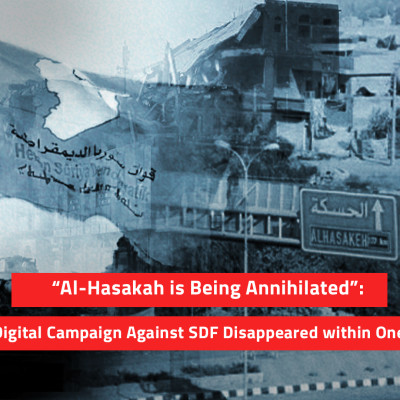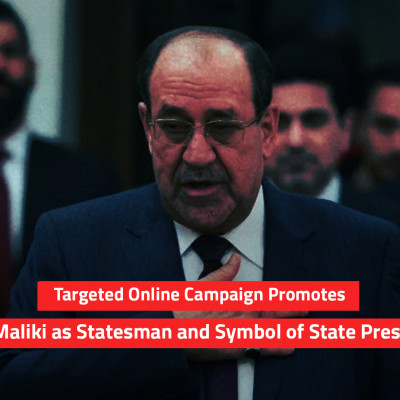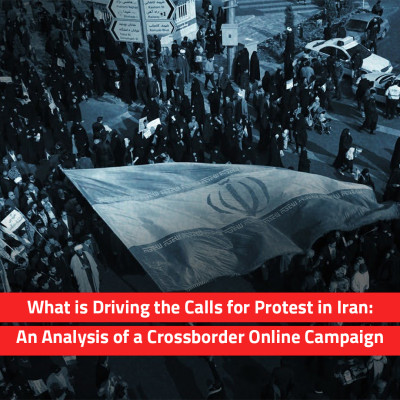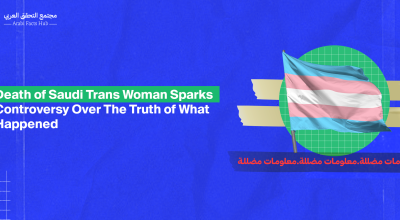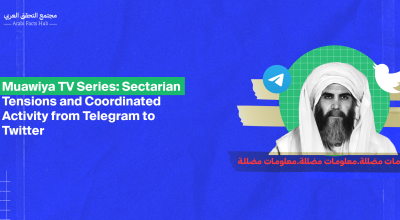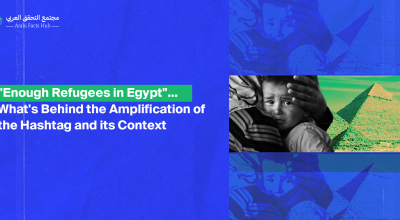Sectarian-Fueled Campaigns Following the Assassination of Hamas Leader
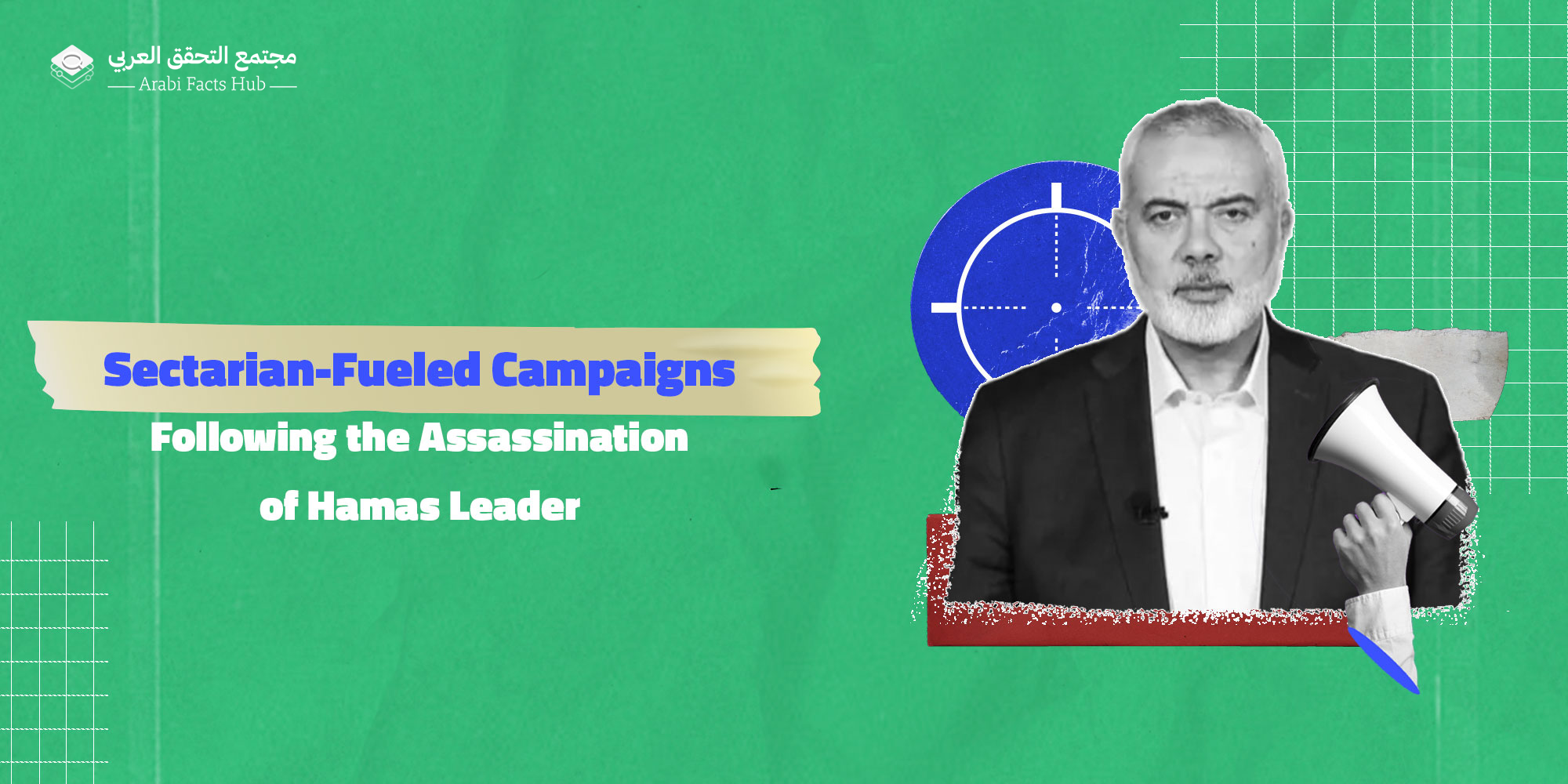
The assassination of Ismail Haniyeh, head of Hamas' political bureau, spiked hashtags driven by inauthentic activity that exploited sectarian tensions between Sunnis and Shias.
Sectarian tensions escalated on social media following the assassination of Ismail Haniyeh in the Iranian capital, Tehran, at the end of July 2024, and Iran’s vow of an “unprecedented” response to the incident. The sectarian divide was further inflamed by coordinated hashtags from different locations attacking the Shia sect and accusing Iran and Hezbollah of assassinating Haniyeh.
The most prominent related hashtags on X include: #Shiite_Is_Not_My_Brother, #Shiite_Is_The_Enemy_Of_Islam_And_Muslims, #NoSafavid_NoZionist, #Rafida_Shia_Are_Infidels, #Shia_Assassinated_Ismail_Haniyeh, #Shia_Killed_My_Sunni_Brothers, #Shia_Are_Not_Muslims, #Rafidi_Shia_Are_The_Enemy_Beware_Of_Them
Between July 30 and August 9, ten related hashtags generated 4,735 posts, resulting in 13,000 interactions and 438,863 views, with an additional potential reach estimated at 2.777 million, according to Meltwater, a leading social media analytics tool.
In contrast, pro-Iranian online groups disseminated propaganda claiming that "only the Shia can stand up to Israel," with some echoing the sentiment that Arab and Sunni states have abandoned Palestine and supported Israel in its war on Gaza.
Key Hashtags, Their Activity Timelines, and Post Volume – Meltwater
Who is influencing the trend?
A total of 1,590 accounts contributed to the wave of posts on the ten hashtags critical of Shia. The United States, Saudi Arabia, Syria, Yemen, and Lebanon topped the list of countries most active on these hashtags. Meanwhile, over 3,700 posts originated from unknown locations, a record high compared to the total number of posts (4,735); this is an indication that posting activities on these hashtags were coordinated.
An account named Shadoumeh (@shadoumeh) launched the hashtags #Shiite_Is_Not_My_Brother and #Shiite_is_my_killer, with 504 posts published under these hashtags, 406 of which came from 180 accounts, according to Meltwater. As a result of its excessive activity on these hashtags, the account was suspended for two days before resuming its activity. Created in October 2023 with only 630 followers, the account has published over 13,000 posts. Most of its posts support the Syrian revolution and attack Iran and Hezbollah for their roles in suppressing the revolution and supporting Syrian President Bashar Al Assad.
Yemeni accounts played a significant role in the spread of the hashtags #Shiites_Assassinated_Ismail_Haniyeh and #Shia_Is_The_Enemy_Of_Islam_And_Muslims, which generated 2,029 posts out of total analyzed posts. Our investigation revealed that the influential accounts behind these hashtags are linked to the "National Media Front," a coalition that broadcasts political propaganda supporting the family of former Yemeni President Ali Abdullah Saleh.
Ali Abdullah Saleh's sons enjoy support from the UAE, which, along with Saudi Arabia, played a role in the UN Security Council's decision to remove Saleh's son, Ahmed Abdullah Saleh, from the sanctions list. These sanctions were imposed on him nearly a decade ago after the family allied with the Houthis to seize control of Sanaa in 2014. The Iran-backed group later turned against Saleh and killed him in November 2017.
Launching online campaigns is one of the activities of the "National Media Front," which operates what is known as a "Tweet Bank." This is common practice in Yemen that is used to conduct coordinated online campaigns. The concept of a "Tweet Bank" involves having "ready-made" posts prepared in advance, which are then used to fuel the activities of accounts participating in the campaigns, whether these accounts belong to real individuals or are fake accounts.
We discovered the Front’s activity when we noticed a post on the hashtags #Shiites_Assassinated_Ismail_Haniyeh and #Shia_Is_The_Enemy_Of_Islam_And_Muslims, published by the account Abu ‘Afash (@abwfash51075589), which uses a picture of former Yemeni President Ali Abdullah Saleh as its profile image. The account owner identifies himself as a "political activist."
The Abu ‘Afash account led us to the Secretary of the "National Media Front," Hadeel Ahmed, who listed the "Abu ‘Afash" account among a list of accounts she described as "the most distinguished personalities, media figures, and influential users on X." The Abu ‘Afash account was also included in another list published by an account named "Tweet Bank."
Content on the hashtags
Negative rhetoric dominated 88.6% of the total posts on the hashtags, equating to at least 4,000 posts. In contrast, there were only 148 positive posts, according to an analysis by Meltwater. The majority of the posts targeted and criticized the Shia sect, using language and descriptions that fall under the category of hate speech.
Prevalent emotions on the hashtags – Meltwater.
The accounts participating in the hashtags used the assassination of Ismail Haniyeh as a starting point to attack the Shia sect. Posts from Saudi, Syrian, and Lebanese accounts warning about "the danger of Shia to Sunni Muslims" became prevalent on the hashtags.
Some individuals echoed the narrative that Iran was involved in the assassination of Haniyeh. A video posted on the hashtags contained claims that Iran had killed large numbers of Palestinians, though these claims have not been proven true. Syrian accounts also shared videos alleging Hezbollah members incited violence against Sunnis in Syria.
The account Columbuos (@Columbuos), which is managed from Saudi Arabia, circulated a claim picked up by Al Arabiya from the Jewish Chronicle that members of the Iranian Revolutionary Guard planted a bomb in Ismail Haniyeh’s room at a guest house in Tehran. The Columbuos account describes itself as "a personality that loves to explore by shining a microscope on opposing media and discovering the hidden truth, to spread awareness and honor our glorious nation." This account is active in orchestrated Saudi online campaigns.
Algerian and Saudi accounts engaged with the hashtag #Rafidi_Shia_are_the_enemy_beware_of_them, describing followers of the Shia sect as "the enemy" and “Magians” (invaders), and warning against cooperating with them.
Calls for Unity Between Sunnis and Shias
On the other hand, Shia campaigns emerged, sometimes calling for unity between the two sects and at other times attacking the Sunni sect. Yemeni accounts launched the hashtag #NoSunniNoShiaImAMuslim, which featured 20,700 posts and garnered 3.7 million views. Of these, 14,600 posts came from accounts with unspecified geographic locations, a notably high rate indicating coordinated activity.
Saudi Arabia ranked first among the known countries most actively posting on the hashtag, followed by Yemen, Iraq, the United States, and Egypt. Yemeni journalist Anis Mansour was the most prominent user of the hashtag. Mansour is considered one of the leading coordinators of inauthentic online activities in support of the Houthis.
In contrast, most trending posts on the hashtag came from Saudi accounts criticizing and mocking the campaign. Some of these accounts used images of Saudi leaders, flags, and symbols as their profile pictures.
Shia Accusations
Some accounts that seem to be associated with the Shia sect adopted a more aggressive stance, claiming that Shias are the true force capable of confronting Israel, contrasting that with the silence of governments in predominantly Sunni countries. For example, the account @MorganAshref listed the Shia forces that "fight Israel and defend Gaza," while criticizing the stance of "Sunni populations."
The account of Iranian media personality Dr. Sh. (DShhla@) posted several sectarian tweets, one of which celebrates "Iran's support for the Axis of Resistance," while another claims that "more than a billion Sunni Muslims are waiting for Shia leaders to avenge a Sunni Muslim resistance leader."
The account, which frequently disseminates pro-Iranian propaganda, posted an AI-generated image depicting Iranian soldiers arresting Israeli Prime Minister Benjamin Netanyahu, with the Iranian flag in the background.
Additionally, Yemeni and Iraqi accounts echoed the narrative that Shias are vowing to retaliate against Israel, while "Sunni rulers are promising to block the response,”. An example is the account "Shaheed Al Naji," which features the Houthi logo as its background. Similarly, the account "Abu ‘Abbas" was active in the days following Haniyeh's assassination, promoting sectarian content that glorifies Shias while attacking "Sunni rulers," particularly in the Gulf states.
























